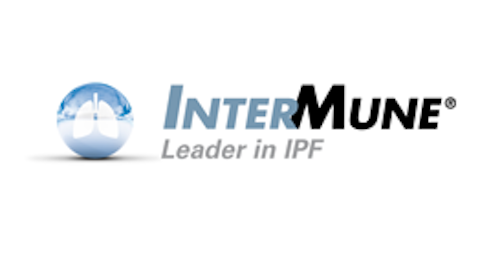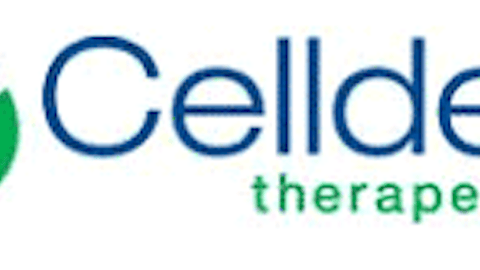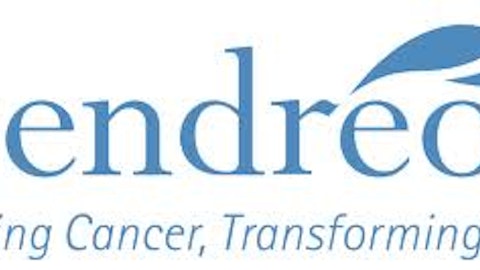Three years ago, cancer immunotherapy was the hottest thing in biotech, as Dendreon Corporation (NASDAQ:DNDN)‘s Provenge earned approval from the Food and Drug Administration and had blockbuster potential, according to most analysts. Yet, disappointing sales, a 90% loss in stock valuation, and several high-profile clinical failures have the industry feeling pressure to perform. With that said, is there still value in immunotherapy?

What went wrong?
Poor Dendreon Corporation (NASDAQ:DNDN)… with Provenge’s near six-figure price tag, limited survival benefit (four months or so), and the need for $400 million in annual revenue to achieve operating cash flow, the prospects for this company look bleak. Yet, despite Dendreon’s post-approval problems, revenue had always grown — that is up until 2013, as revenue is now declining at a near double-digit rate.
Provenge was the first ever FDA-approved cancer immunotherapy, a drug that uses the immune system to fight cancer. Since then, we’ve seen two high-profile failed immunotherapy trials: Oncothyreon‘s Stimuvax and Vical‘s Allovectin.
As immunologist Dr. Rahul Jasuja explained, Stimuvax’s development began in the “early days” of immunotherapy, before much of the more telling research was known. Since then, the company has added potent immune modulators to stimulate a higher immune response. In the Stimuvax trial, immune response was the issue, as a 12% reduction in the risk of death compared to placebo was not statistically significant.
Vical’s Allovectin was tested against an aggressive form of melanoma, but because patients enrolled were more likely to survive, it was difficult to prove a survival benefit. Thus, Allovectin was not proven to be statstically significant versus chemotherapy in its 390-subject trial.
Is there good in immunotherapy?
While Provenge has been disappointing, and we have seen recent failed clinical trials, there are two companies that still look appealing: Celldex Therapeutics, Inc. (NASDAQ:CLDX) and Galena Biopharma Inc (NASDAQ:GALE) .
Much like Vical and Oncothyreon, Celldex Therapeutics, Inc. (NASDAQ:CLDX) is developing products to treat cancers in late stages. But rather than just using an immunotherapy approach, the company is also using an APC targeting technology with antibodies. Celldex also uses an immune system modulator — now being used by Oncothyreon in early studies — to activate certain parts of the immune system. This combination has proven to be successful.
Celldex Therapeutics, Inc. (NASDAQ:CLDX) has shown success in treating both glioblastoma multiforme (brain cancer) and late-stage breast cancer. In a phase 2 ACT III study, the company’s glioblastoma drug, rindopepimut, created an overall survival of 24.6 months with 26% of patients surviving three years. In comparison, the median overall survival of the disease is just 15 months. Thus, Celldex Therapeutics, Inc. (NASDAQ:CLDX) has been awarded both orphan drug and fast-track designation for the phase 3 trials.
Then, CDX-011, which treats an aggressive form of breast cancer, demonstrated an increase in overall survival and slowed the growth of tumors in a phase 2b trial last year. This drug has been granted an accelerated approval. Therefore, Celldex Therapeutics, Inc. (NASDAQ:CLDX) with its diversified approach to stimulating the immune system appears to be ahead of others in the immunotherapy space.
With a market cap of $1.8 billion, and a one-year gain of 300%, Celldex is clearly valued for success and could be a much-needed win for the immunotherapy industry. By most accounts, Celldex’s two key products have sales expectations in excess of $1.5 billion, meaning there is still value in the stock. However, Celldex Therapeutics, Inc. (NASDAQ:CLDX) also has a large pipeline based on its therapeutic approach, meaning that long-term gains could be in store for investors of this company.
Keeping patients healthy
Lastly, Galena Biopharma Inc (NASDAQ:GALE) is a relevant company in the immunotherapy conversation because of its therapeutic approach. Unlike Oncothyreon, Vical, and even Dendreon Corporation (NASDAQ:DNDN) or Celldex — biotechs treating diseases in the most advanced stage — Galena is simply trying to keep patients disease-free.
Galena Biopharma Inc (NASDAQ:GALE)’s phase 3 vaccine, NeuVax, is used on breast cancer patients who are healthy but are at risk of recurrence. NeuVax targets patients who express low to intermediate levels of a protein called HER2, which is a protein targeted by the $7 billion-a-year drug, Herceptin.
The difference is that Herceptin only targets high levels of expression, leaving up to 50% of the market unaccounted for. In a phase 2 study, Galena Biopharma Inc (NASDAQ:GALE)’s approach of targeting this protein and activating the immune system caused an overall 50% reduction in recurrence compared to the control group.
But more impressive was the 78% reduction in vaccinated patients who were optimally dosed and who received booster shots. In the company’s ongoing phase 3 study, all patients will be optimally dosed and will receive boosters, further adding fuel to the optimistic fire.
So far, Galena Biopharma Inc (NASDAQ:GALE)’s approach of preventing recurrence is working, but it is a new approach that has not yet been done in immunotherapy. Therefore, Galena is a very speculative stock, trading with a market cap of around $200 million. But given the company’s early results, Herceptin’s large sales, and the potential patient population that exists, Galena might be worth a long hard look to succeed in immunotherapy.
Final thoughts
Celldex and Galena Biopharma Inc (NASDAQ:GALE) fit into the broad category of companies using what Dendreon Corporation (NASDAQ:DNDN) made famous, but they have modified their therapeutic approach to experience early success. This speaks volumes for the direction of immunotherapy, an industry that is nowhere near dead — but rather innovating quickly.
Just this year, at ASCO, anti-PD1s were the highlight of the show. Being developed by Merck, Roche, and Bristol-Myers Squibb, anti-PD1s essentially remove the camouflage from cancer cells so that the immune system can identify them as foreign and then attack. Merck’s anti-PD-1 drug labrolizumab shrank tumors in 38% of patients with advanced melanoma, and along with its peers , prove that this approach might be the next phase of immunotherapy in treating the disease.
With that said, immunotherapy doesn’t appear to be on the decline, but rather innovating quickly. For investors, we shouldn’t look solely at past failures, but rather new technologies, and the interest shown by big pharma to develop in this space. Then, we realize the future is quite bright for immunotherapy — and those that are innovating.
The article Is There Still Upside in Immunotherapy? originally appeared on Fool.com and is written by Brian Nichols.
Brian Nichols is long Galena and Celldex. The Motley Fool has no position in any of the stocks mentioned.
Copyright © 1995 – 2013 The Motley Fool, LLC. All rights reserved. The Motley Fool has a disclosure policy.




